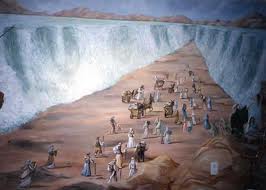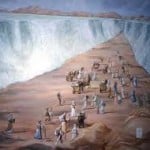The 2013 elections have passed and the Netanyahu government finds itself constrained by newer complications and confusing boundaries. Yet those constraints were created by Netanyahu’s own short sightedness. He and his advisers decided to begin an all out war of hatred and misinformation regarding the “Jewish Home ‘party and its leader Naftali Bennet. This was done to bring back to the Likud ranks, those voters who saw in Bennet the clear headed vision they once thought reigned in the Likud party . This campaign was so effective that it did actually lessen the number of mandates for the Bennet party. Yet those mandates did not go over to the Likud. Instead they and some mandates from the Likud itself went to the Yair Lapid party. This Lapid “ Yesh Atid “party was the perfect receptacle because that it simply espoused “change” without defining how that change would be implemented. This very tactic is so very similar to the successful tactics of the Obama campaign.
Yet Netanyahu unwittingly unleashed ancient Jewish fears of being shunned by some in the world as a result of a unique and faithful path.That old fear forced people to search for easy answers. The Lapid” Yesh Atid” party was the perfect example of a “simple answer”.That fear of moving forward on a path that is correct, faithful and unique has consistently vexed this people since the Exodus from Egypt. Yet we will need to come to realize that t is that fear that needs to be vanquished .Otherwise Israel and its people will continue to defer the destiny and purpose of this people.
To understand this we need to ask what exactly died on the shores of the Red Sea? The verse tells us” In the morning the sea splits and the Israelites pass through, and then closes over the pursuing Egyptians. On that day HaShem saved Israel from the hand of Egypt , and Israel saw Egypt dying on the seashore.( Exodus 14:30).
The text tells us that “and Israel saw Egypt dying on the seashore”, not the Egyptians. The question becomes more pressing when we also read in an earlier verse “Egypt chased after them and overtook them encamped by the sea every horse of Pharaoh’s chariots, his horsemen, and his force beside Pi hahiroth, in front of Ba’al Zephon.(ibid 14:9)”
These children of Israel were raised and nurtured with a slave mentality. They grew up believing that they were seemingly not in control of their time, their daily struggle and their destiny. They felt trapped by their slavery and their Egyptian overlords. In fact the Hebrew name for Egypt, Mitzrayim,is derived from the word “meitzarim”, which means limitations. Rav Dessler, zt”l, (Michtav MeEliyahu 2ch, ) explains that Mitzrayim was called by that name because it was a place of spiritual constriction and restriction. The possibility of spiritual growth was thought of as impossible task .
Mitzrayim ( Egypt) continued to hold them prisoner in the midst of and even after their exodus. The Torah portion that describes the Exodus begins with the word Vayehi; ” It came to pass ( VAYEHI )when Pharaoh let the people go, and that God did not lead them [by] way of the land of the Philistines for it was near, because God said, Lest the people reconsider when they see war and return to Egypt (Exodus 13:17)
The word VaYehi translated as “ It Came to pass” is an eternal code word .The sages point out that whenever the word ” VaYehi appears In the Biblical text , it is a sign of impending danger and difficulty. We see this as an introduction to a time of danger and threats in the Book of Esther: “Now it came to pass( VaYehi) in the days of Ahashverush..” (Esther1;1)What then was sad or tragic about the exodus from Egypt?
The Hasidic master, Rabbi Yehiel Mikhal of Zlotchov explained an important insight into a previous verse in Exodus ‘ (Exodus 6:1). “And HaShem said unto Moshe: ‘Now shalt thou see what I will do to Pharaoh; for by a strong hand shall he let them go, and by a strong hand shall he drive them out of his land.’ (Exodus 6:1). The text seems to imply that Pharaoh would have to chase them out of their bondage in Egypt .
Reb Yehiel explained that Israel ‘s exiles will always be self-inflicted. If they lose hope and vision then exile is always quick to follow . Only when the Jewish people find the strength to become themselves would they then have the strength to deny the nations of the world the power to subjugate them physically or spiritually.
It is then that they approach the Red Sea. Again they are placed in a place of strict boundaries and constraints .They stood before the Red sea with the desert closing in on them from both sides and the Egyptians coming from the rear. It is then that Moshe says” Don’t be afraid! Stand firm and see Hashem’s salvation that He will wreak for you today, for the way you have seen Egypt is [only] today, [but] you shall no longer continue to see them that way for eternity.”
Yet words are not enough. Hashem then tells Moshe “Why are you crying out to Me? Speak unto the children of Israel that they go forward.” (ibid:15) The spiritual ingredient which heralded the miracle and tore the sea apart was the fact that the people simply “went forward”. They took destiny into their own hands of faith. As a result “Israel saw Egypt dying on the seashore.( ibid:30).The Egypt of boundaries and constraints had perished. The Egypt of stunted growth and personal development was destroyed on the shores of the sea.
For a people or an individual to truly walk forward into destiny and purpose they need to find and discover inner reservoirs of strength and fortitude. Without that they become a weak and cracked vessel that cannot withstand the pressures of reality.
Israel has undergone a difficult and rancor filled election process. Now that process has ended and the difficult work of bringing people and the nation together will need to begin. The healing power of vision and hope is the only hope for such a process. That vision cannot be limited or blunted by the constraints and boundaries imposed by the world or arising out of our fears. Israel must regain its voice and vision. Otherwise destiny will be deferred again.

